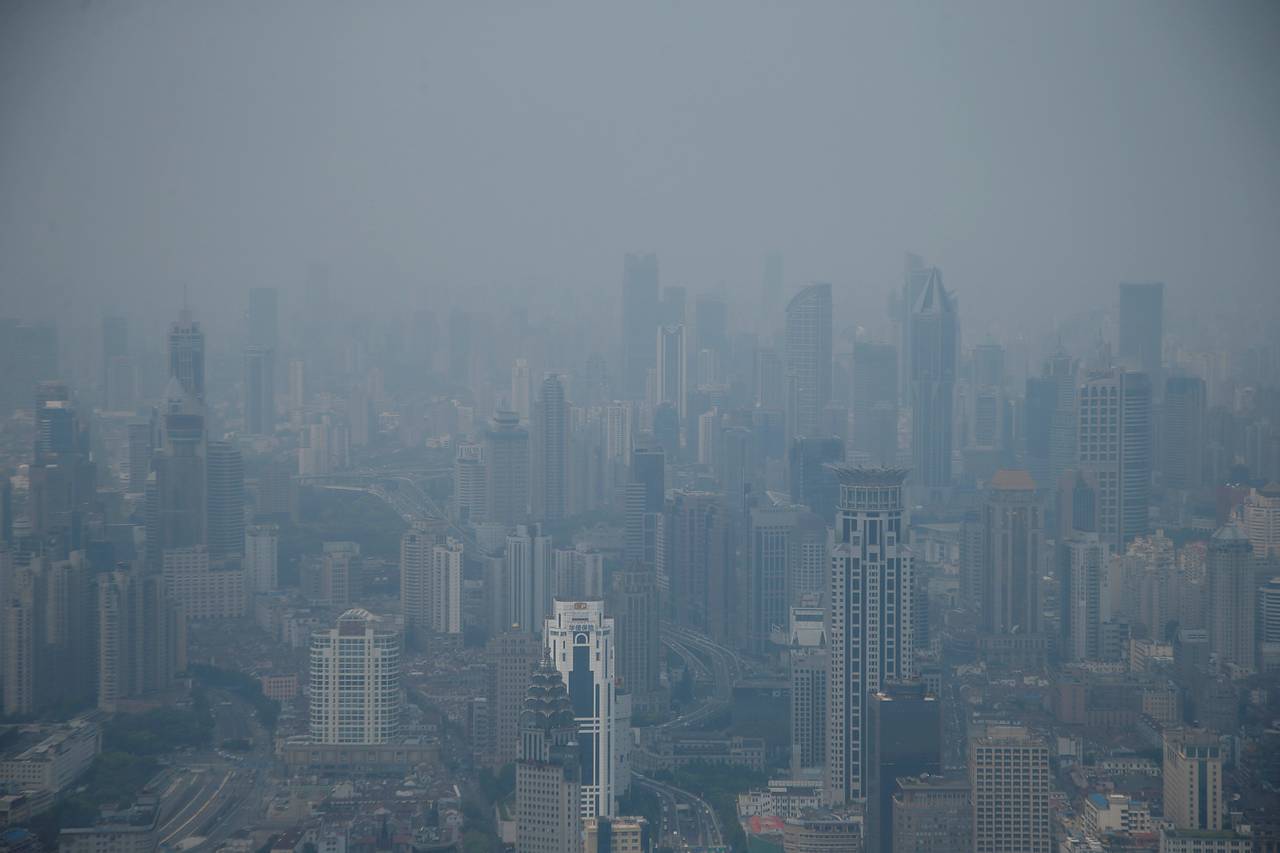
Quartz reports: "Few doubt that Beijing's notorious smog harms human health. In early 2013, the city's air pollution was bad enough to hospitalize about 7,000 children a day due to respiratory ailments. But the city's smog contains more than just particulates. Scientists from the University of Gothenburg in Sweden found that, out of 864 DNA samples taken from humans, animals, and external environments worldwide, Beijing smog contained the highest richness of antibiotic-resistance genes (ARGs)...In the Beijing News...a Nov. 26 piece quoted a commission expert noting that the ARGs were different from bacterium. He added that the ARGs don't make people ill, and that the human immune system can fight off most of the bacterium. Never mind that the real issue is that "if the bacteria causes a disease and the bacteria carries ARGs, it would be harder to cure the disease," as Larsson told the financial news outlet Caixin"
- Reuters reports: "A Donald Trump presidency does not mean the United States will withdraw from the South China Sea, but rather will continue pursuing "regional hegemony", Chinese academics who drafted a report for an influential government think tank said on Friday.Ensuring "absolute control" over the South China Sea was the crux of U.S. military strategy in the Asia-Pacific, according to what the authors said was China's first ever public report on the U.S. military presence in the region, released on Friday in Beijing...Trump rarely mentioned the South China Sea on the campaign trail, but concentrated on the economic relationship with Beijing, threatening to label China a currency manipulator and impose import tariffs on Chinese imports...The build-up of military might in the region has led to worries of a rising risk of accidental collisions that could spark conflict.
- The Washington Post reports: "Around the world, concerns are mounting about China's unfair trade and investment practices. How Donald Trump responds could have a far-reaching impact on the global economy and financial markets...The American Chamber of Commerce in China, which usually is very measured in any criticism of China, complained this monthabout a rise in protectionism and "economic hegemony," with doors closing to foreign investment, regulations biased against foreign companies, and new national security-related laws breeding "distrust and paranoia."The United States "needs to raise its game with the Chinese to drive for a sense of urgency" in dealing with these issues, it said.
- 2016-11-25 Trump will pursue 'regional hegemony' in South China Sea: Chinese academic...
- 2016-11-24 China's Economy Looks Like It's Remaining Stable
- 2016-11-23 China Has Warned of Retaliation if U.S. Levies Tariffs, Commerce Secretary Says
- 2016-11-22 China Touts Its Own Trade Pact as U.S.-Backed One Withers
- 2016-11-21 Recent Developments Surrounding the South China Sea
- 2016-11-20 Xi Meets With Obama, Says U.S. and China at 'Hinge' Moment
- 2016-11-18 China Presses Tech Firms to Police the Internet
- 2016-11-17 Panel Recommends Banning Chinese State Companies From U.S. Acquisitions
- 2016-11-16 In Trump’s China, Industrial Subsidies Loom Large
- 2016-11-15 U.S. Workers to Lose in China Trade War
- Reuters Trump will pursue 'regional hegemony' in South China Sea: Chinese academics
- Quartz Antibiotic-resistance genes in Beijing's smog are nothing to worry about, Chinese officials say
- The Washington Post As Trump prepares for office, concerns about China trade intensify
- Forbes The Audacity Of China EV Unicorn WM Motor--On Display Soon
- Reuters Red-hot steel rally swells on China bets, powers zinc to nine-year high
- The Guardian China risks wasting $490bn on new coal plants, say campaigners
- Reuters New U.N. chief, in China, calls for human rights respect
- TIME Hong Kong Cardinal Says Any Deal Between the Vatican and China Would be 'Betraying Christ'
- South China Morning Post China tries to catch up to Japan with maglev train that can exceed 600km/h
- Quartz A Pulitzer winner is giving away her book in Chinese because the topic scared off publishers
- Reuters China 'concerned' over Philippines' detention of Chinese in gambling crackdown
- South China Morning Post China's central bank talks up the yuan against US dollar 'uncertainties'
- CNN Chinese power plant boss arrested over deadly platform collapse
- Reuters Religious extremism is spreading to inland China: official
- The Wall Street Journal 'Social' Feature Turns China's Alipay Into a Hook-Up App
- Los Angeles Times Hollywood's golden age in China is coming to an end
- Bloomberg When Chinese Bank's Trump Lease Ends, Potential Conflict Begins
- The Wall Street Journal China's New Agricultural Data Sow Seeds of Doubt
- Bloomberg An American-Made iPhone? Not Happening.
